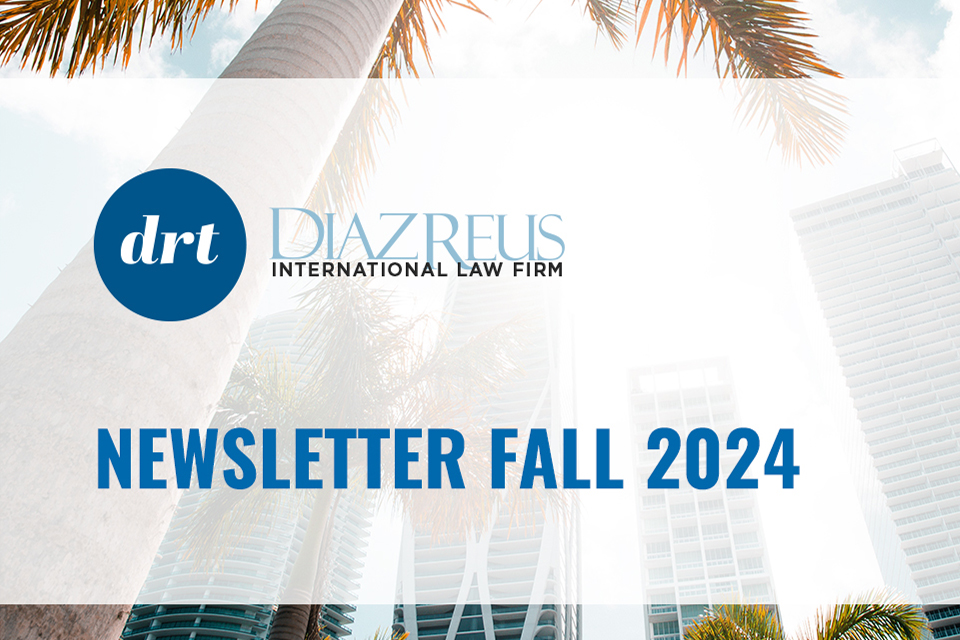The U.S. Government Expands Its Venezuela-Related Sanctions
On June 18, 2020, the U.S. Treasury Department’s Office of Foreign Assets Control (“OFAC”) sanctioned a number of Mexican individuals, entities, and vessels for “their activities in or associated with a network attempting to evade United States sanctions on Venezuela’s oil sector.” OFAC’s action was based on Executive Order (“E.O.”) 13850 authorizing economic sanctions on persons operating in certain sectors of the Venezuelan economy.
Additionally, OFAC issued General License No. 37 authorizing certain transactions and activities that are ordinarily incident and necessary to the wind down of transactions involving the entities and vessels sanctioned by OFAC through 12:01 am eastern daylight time, July 21, 2020.
And Reaffirms That OFAC Sanctions Need Not Be Permanent…
On the same date, OFAC reconsidered its sanctions on certain companies and vessels from Panama, Greece, and Marshall Islands that OFAC had previously sanctioned on June 2, 2020 under E.O. 13850. Specifically, OFAC removed these companies and vessels from the List of Specially Designated Nationals and Blocked Persons (“SDN List”) because they committed to enhance their Sanctions Compliance Programs (“SCPs”) and ceased their involvement in the oil sector of the Venezuelan economy.
DRT Commentary
Consequences of These Additional Sanctions
Individuals and companies sanctioned by OFAC were added to the SDN List. Accordingly, all of their property within or transiting U.S. jurisdiction is blocked. In addition, if they are not authorized by a general or specific license issued by OFAC, U.S. persons or foreigners that conduct business in or with the U.S., U.S. persons, or using U.S.-origin goods or services are prohibited from engaging in transactions with individuals and companies sanctioned under Executive Order 13850 or with entities in which they have, directly or indirectly, 50% or greater ownership interest.
U.S. and foreign persons violating OFAC Sanctions related to Venezuela may face significant civil and criminal penalties. OFAC may also add them to its SDN List (secondary sanctions).
Preventing Violations of OFAC Sanctions Related to Venezuela
Immediately conduct an OFAC review of any transaction involving Venezuela to confirm whether you need OFAC’s authorization to proceed. If necessary, request OFAC’s specific license or interpretative guidance. In addition, organizations can prevent, detect, and react appropriately to violations of OFAC Sanctions by designing and actively implementing SCPs. Having an active and effective SCP is also a significant mitigating factor that OFAC will consider when deciding whether to impose sanctions based on an apparent violation of its regulations, or for calculating any appropriate penalty.
Legal Options for Sanctioned Individuals and Entities
OFAC Sanctions seek to bring about a positive change of the behavior of individuals and entities designated in OFAC’s SDN List. Accordingly, OFAC will consider removing sanctions from these individuals and entities if they prove that an insufficient basis exists for OFAC’s sanctions, or that the circumstances resulting in OFAC’s sanctions no longer exist.
For example, OFAC’s guidelines define that the best path forward to sanctions removal for individuals and entities sanctioned by OFAC under E.O. 13850 is to take concrete and meaningful actions to help restore democratic order in Venezuela, refuse to take part in human rights abuses, speak out against abuses committed by the Maduro regime, cease involvement in the oil, gold, financial, and/or defense and security sectors of the Venezuelan economy, or take actions to combat corruption in Venezuela.
Anyone placed on the SDN List by OFAC has the right to seek removal under an administrative process known as “De-Listing.” To be removed, listed individuals and entities can file a written request for reconsideration with OFAC. If OFAC denies this request for De-Listing, administrative remedies are deemed exhausted and listed individuals and entities can subsequently file a civil action with a U.S. District Court seeking judicial review of OFAC’s actions under the Administrative Procedure Act.
Info: Michael Diaz, Jr., Javier Coronado


















































































![Especial abogados Salón de la Fama[61] 4](https://diazreus.com/wp-content/uploads/2023/06/Especial-abogados-Salon-de-la-Fama61-4-pdf.jpg)


























































































































































































